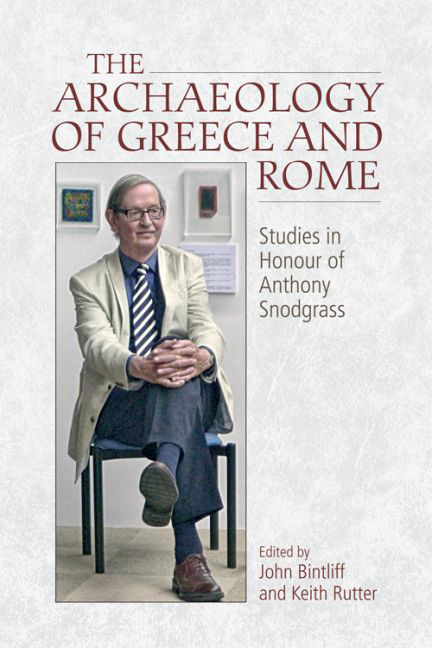Book contents
- Frontmatter
- Contents
- Preface
- List of Contributors
- List of Abbreviations
- Section I Prehistory
- Section II Around Homer
- 4 Homer and the Ekphrasists: Text and Picture in the Elder Philostratus' ‘Scamander’ (Imagines I.1)
- 5 Homer's Audience: What Did They See?
- 6 Homer and the Sculptors
- Section III The Archaic and Classical Greek World
- Section IV The Greeks and their Neighbours
- Section V The Roman and Much Wider World
- Section VI The Scholar in the University and in the Field: Personal Histories
- Index
6 - Homer and the Sculptors
from Section II Around Homer
Published online by Cambridge University Press: 26 May 2017
- Frontmatter
- Contents
- Preface
- List of Contributors
- List of Abbreviations
- Section I Prehistory
- Section II Around Homer
- 4 Homer and the Ekphrasists: Text and Picture in the Elder Philostratus' ‘Scamander’ (Imagines I.1)
- 5 Homer's Audience: What Did They See?
- 6 Homer and the Sculptors
- Section III The Archaic and Classical Greek World
- Section IV The Greeks and their Neighbours
- Section V The Roman and Much Wider World
- Section VI The Scholar in the University and in the Field: Personal Histories
- Index
Summary
The last time I wrote an essay for Anthony Snodgrass was in February 1980. He set the title: ‘Have we the Hermes of Praxiteles?’ – and, as I recall, gave no indication of what he himself thought was the ‘right’ answer to that question. My undergraduate partner for discussion of the topic would have been John Bennett (already showing signs of being more interested in the Aegean Bronze Age than in problems of Praxitelean authenticity). In the professorial office at the old Museum of Classical Archaeology (‘the Ark’) down Little St Mary's Lane, with Cambridge dusk descending, we sat semi-mesmerised as our mentor went through the many minor rites of cleaning, filling and eventually smoking his pipe. Between puffs came a limited range of responses: ‘Ah.’ ‘Interesting.’ ‘Really?’ ‘Hmmm …’ – and through the fumes, glimpses of a mysterious half-smile. It would be wrong to say that we left none the wiser. But I wondered if this was what it might have been like to consult a subdued version of the Delphic Oracle: aromatic smoke in the twilight; costive utterance to be pondered at length for its interpretation.
Almost four decades on, I feel I have come no further in being able to read the mind of Anthony Snodgrass. What he will think of my offering to this volume is pleasantly unpredictable. It aims, however, to add a complementary angle to what I think is his most forthright and unequivocal book, Homer and the Artists, and comes with abiding respect.
‘In the beginning, Homer was just a very good poet living in Ionia’ (Snodgrass 1998: 11). That premise is more controversial than perhaps it seems at first sight: if Homer appeared to his contemporaries an extraordinary genius, a poet uniquely privileged with divine inspiration, then one might indeed argue that he directly catalysed the coming of Greek literacy, and the development of figure scenes in early Greek art. But suppose, for present purposes, that the reputation of an eighth-century bc Homer was local to Ionia, and that the poet died (as one legend had it) poor and obscure. So his genius was only recognised/created/celebrated later; and so ‘a very good poet’ became Homer the great founding father of Classical literature.
- Type
- Chapter
- Information
- The Archaeology of Greece and RomeStudies In Honour of Anthony Snodgrass, pp. 113 - 152Publisher: Edinburgh University PressPrint publication year: 2016



